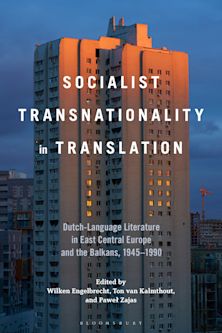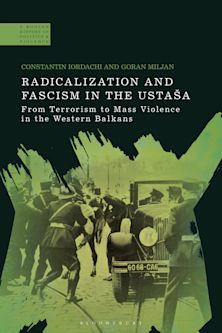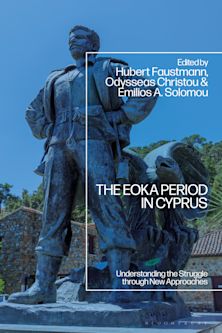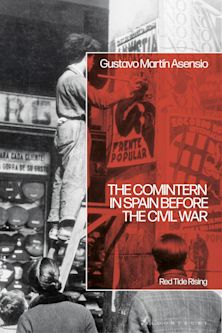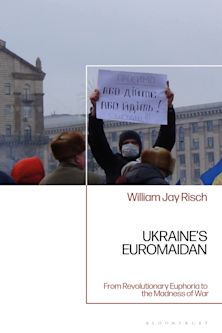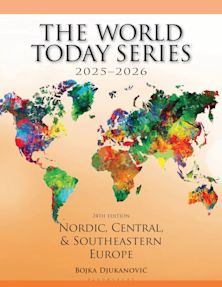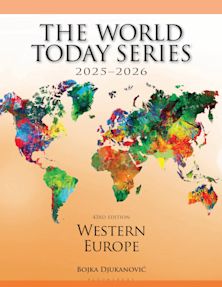West German Ostpolitik, the Soviet Union, and East-West Détente in Europe
West German Ostpolitik, the Soviet Union, and East-West Détente in Europe
Description
West German Ostpolitik, the Soviet Union, and East-West Détente in Europe explores how the détente policy changed the character of the Cold War.
The Moscow files, now opened for the first time show 50 years later, reveal new insights and implications into the creation and implementation of the détente policy. This collection offers a detailed examination of European security from the mid-1960s to the mid-1970s with focus on five areas: 1) the first stirrings of détente in West German-Soviet relations, the framework conditions of domestic and foreign policy on the two sides and the extent to which interests ultimately enshrined in treaties were contradictory and/or compatible; 2) the preconditions of détente in the first half of the Brezhnev era; 3) economic interests as a driving force of political change; 4) the consequences of the Treaty of Moscow for East European states; and 5) the consequences of the Transatlantic partnership. The contributors highlight the complexity of domestic and international considerations that produced Ostpolitik and the subsequent emergence of long-term East-West détente in Europe, while offering the argument that Eastern policies and détente only came to fruition after the climax of the Cold War.
Table of Contents
About the Editors
About the Contributors
Acknowledgments
List of Abbreviations
Introduction
Michael Borchard (Konrad Adenauer Foundation, Germany), Stefan Karner (University of Graz, Austria), Hanns Jürgen Küsters (University of Bonn, Germany), and Peter Ruggenthaler (Ludwig Boltzmann Institute for Research on Consequences of War, Austria)
Part 1: East-West Détente – Times of Change in the Early Brezhnev Era
1. Was the “Neue Ostpolitik” Really That New? The Establishment of Diplomatic Relations and Their Consequences and the Lines of Continuity Leading to Willy Brandt's Policies
Michael Borchard (Konrad Adenauer Foundation, Germany)
2. Germany's Legal Status in the Negotiations on the Treaties with Warsaw Pact States, the Basic Treaty and the CSCE in the Light of Soviet Files
Hanns Jürgen Küsters (University of Bonn, Germany)
3. The Soviet Economy in the Khrushchev and Brezhnev Years 1964–1975. Reforms, Doldrums and Paths Not Taken
Stefan Karner (University of Graz, Austria)
4. The Brezhnev Doctrine and its Implications for Ostpolitik
Mark Kramer (Harvard University, USA)
5. Brezhnev and Brandt's Neue Ostpolitik
Mikhail Prozumenshchikov (Russian State Archives of Contemporary History, Russia)
6. The Road to Helsinki: Defusing tensions with Bonn as the last stage on the road to the Conference on Security and Cooperation in Europe
Peter Ruggenthaler and Anna Steiner (Ludwig Boltzmann Institute for Research on Consequences of War, Austria)
7. The KGB's Secret Channel and Its Actors, 1969–1981
Nikita Petrov (Memorial International, Russia)
8. The Soviet Union, China, and Détente
Sergey Radchenko (Johns Hopkins School of Advanced International Studies Europe, Italy)
Part 2: Western Allies and the West Germany's Ostpolitik
9. Interest and the Shared Purpose of the Western Alliance. The North Atlantic Alliance and the Runup to the Conference on Security and Cooperation in Europe 1964–1972
Dieter Krüger (University of Potsdam, Germany)
10. Complex Relations: Nixon, Kissinger, and Willy Brandt
Klaus Larres (University of North Carolina at Chapel Hill, USA) and Ashley Low (University of North Carolina at Greensboro, USA)
11. A Relic of the Cold War? The Nixon Administration, Brandt's New Ostpolitik” and Radio Free Europe, 1969-73
Douglas Selvage (Stasi Records Archive, Germany)
12. The Basis of Ostpolitik and Détente: The Heath Government (1970-1974) and the Berlin Question
Anne Deighton (University of Oxford, UK)
13. French Détente Policy and “new Ostpolitik“
Julien Genevois (Sorbonne Nouvelle University, France)
Part 3: The Impacts of Détente in East Central Europe
14. Anchoring the GDR in the Eastern Bloc as a Collateral Effect of Détente
Manfred Wilke (Ludwig Boltzmann Institute for Research on Consequences of War, Austria)
15. The People's Republic of Poland and Ostpolitik
Wanda Jarzabek (Polish Academy of Sciences, Poland)
16. 1968, Czechoslovakia, U.S. Policy and Détente
Oldrich Tuma (Czech Academy of Sciences, Czech Republic)
17. Uncanny Leagues: Brandt, Ceau?escu, and the Cold War Détente
Marius Stan (University of Bucharest, Romania)
18. Hungary in the Ostpolitik of the Federal Republic of Germany
Magdolna Baráth (Historical Archives of the Hungarian State Security, Hungary)
19. Bulgaria, CSCE, and West German Ostpolitik
Nadia Boyadjieva (Bulgarian Academy of Sciences, Bulgaria)
Selected Bibliography
Printed Sources
Index
Product details

| Published | 08 Jan 2026 |
|---|---|
| Format | Ebook (Epub & Mobi) |
| Edition | 1st |
| Extent | 496 |
| ISBN | 9798765167687 |
| Imprint | Bloomsbury Academic |
| Illustrations | 1 b/w illus |
| Series | The Harvard Cold War Studies Book Series |
| Publisher | Bloomsbury Publishing |

ONLINE RESOURCES
Bloomsbury Collections
This book is available on Bloomsbury Collections where your library has access.













